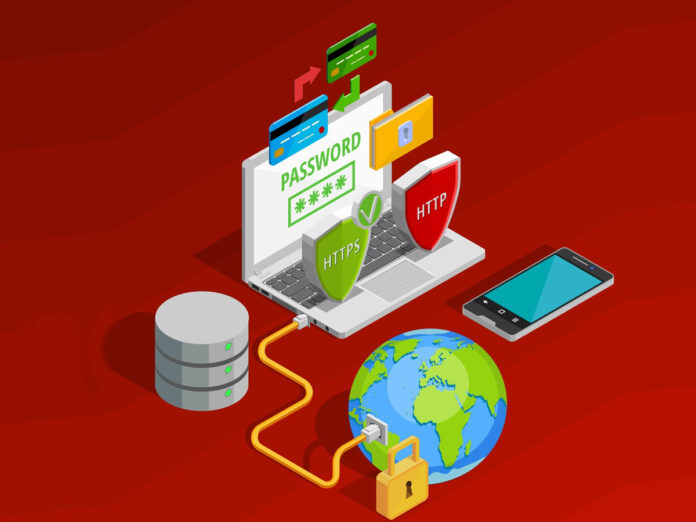Fintech Staff Writer
As the internet evolves toward a decentralized Web3 ecosystem, traditional methods of identity verification are proving inadequate. Centralized identity systems rely on third parties to store and manage user credentials, making them vulnerable to breaches, privacy violations, and identity theft. In response, Self-Sovereign Identity (SSI) has emerged as a transformative solution that enables users to control their digital identities without reliance on intermediaries.
SSI plays a crucial role in decentralized authentication for decentralized applications (dApps), providing users with greater security, privacy, and ownership over their data.
Understanding Self-Sovereign Identity (SSI)
Self-Sovereign Identity (SSI) is a user-centric identity model that allows individuals to own, control, and manage their digital identities without relying on centralized authorities like governments, corporations, or social media platforms. Unlike traditional identity systems, where user data is stored on central servers, SSI operates on decentralized networks such as blockchain, ensuring privacy, security, and interoperability.
Key Components of SSI
- Decentralized Identifiers (DIDs) – Unique, blockchain-based identifiers that replace usernames and passwords.
- Verifiable Credentials (VCs) – Digitally signed credentials issued by trusted entities (e.g., universities, governments) that users can present without revealing excessive data.
- Blockchain & Distributed Ledgers – Immutable storage solutions that verify identity claims without exposing personal information.
- Zero-Knowledge Proofs (ZKPs) – Cryptographic techniques that allow users to prove identity attributes without revealing actual data (e.g., proving age without disclosing birthdate).
Why SSI Matters in Web3
Web3 aims to eliminate intermediaries and provide users with direct control over their data and digital assets. However, traditional authentication methods—such as email/password logins and OAuth-based social logins—are incompatible with this decentralized vision.
SSI aligns perfectly with Web3 principles by enabling decentralized authentication, where users verify their identity without third-party involvement. Instead of logging in through centralized servers, users authenticate themselves using DIDs and cryptographic proofs, ensuring security, privacy, and censorship resistance.
Benefits of SSI in Web3 Authentication
- Enhanced Privacy – Users only share the minimum required data, reducing exposure to breaches.
- Elimination of Passwords – Cryptographic keys and verifiable credentials replace weak and hackable passwords.
- Interoperability – SSI works across different dApps and blockchain networks, eliminating platform-specific logins.
- User Ownership – Users control their credentials and can revoke access at any time.
- Censorship Resistance – Governments and corporations cannot control or revoke identities arbitrarily.
Read More : Finance Leaders Reveal The Hidden Costs of Legacy Expense Management Systems
Real-World Implementations of SSI in dApps
1. Decentralized Finance (DeFi) KYC Compliance
Decentralized finance (DeFi) platforms require users to verify their identity for regulatory compliance, but traditional Know Your Customer (KYC) processes compromise privacy. SSI enables privacy-preserving KYC, where users obtain verifiable credentials from trusted issuers (e.g., regulatory authorities) and use them to prove compliance without exposing sensitive data.
2. Web3 Social Networks
Decentralized social platforms are leveraging SSI to authenticate users without relying on centralized platforms like Google or Facebook. Instead of surrendering personal data, users authenticate using DIDs, preserving anonymity while proving identity attributes when necessary.
3. Gaming and Metaverse Identity
In the metaverse, digital avatars and assets need verifiable identities to prevent fraud and identity theft. SSI enables players to own and control their gaming profiles, credentials, and in-game assets across multiple virtual worlds.
4. DAO Membership Verification
Decentralized Autonomous Organizations (DAOs) require trustless voting systems while ensuring that only eligible members participate. SSI allows DAOs to verify membership and voting rights without exposing users’ identities.
Trends Shaping the Future of SSI:
- SSI-powered NFT authentication – Verifying ownership of digital collectibles using decentralized identities.
- Enterprise adoption – Companies integrating SSI into their Web3 strategies for secure employee authentication.
- Privacy-first AI – Combining SSI with AI-driven authentication for enhanced security in decentralized environments.
- Global regulatory frameworks – Governments developing policies to support SSI adoption in decentralized systems.
As Web3 shifts the internet towards decentralization and user sovereignty, Self-Sovereign Identity (SSI) emerges as the cornerstone of trustless authentication. By enabling users to control their identities, SSI eliminates the need for centralized intermediaries while enhancing privacy, security, and interoperability.
From DeFi and DAOs to metaverse applications, real-world implementations of SSI are proving its potential to revolutionize identity verification in Web3. While challenges remain, continued innovation in blockchain, cryptography, and decentralized key management will pave the way for SSI-powered authentication to become a global standard.
Read More: Global Fintech Interview with Jeremy Ung, Chief Technology Officer at Blackline
[To share your insights with us, please write to psen@itechseries.com ]
